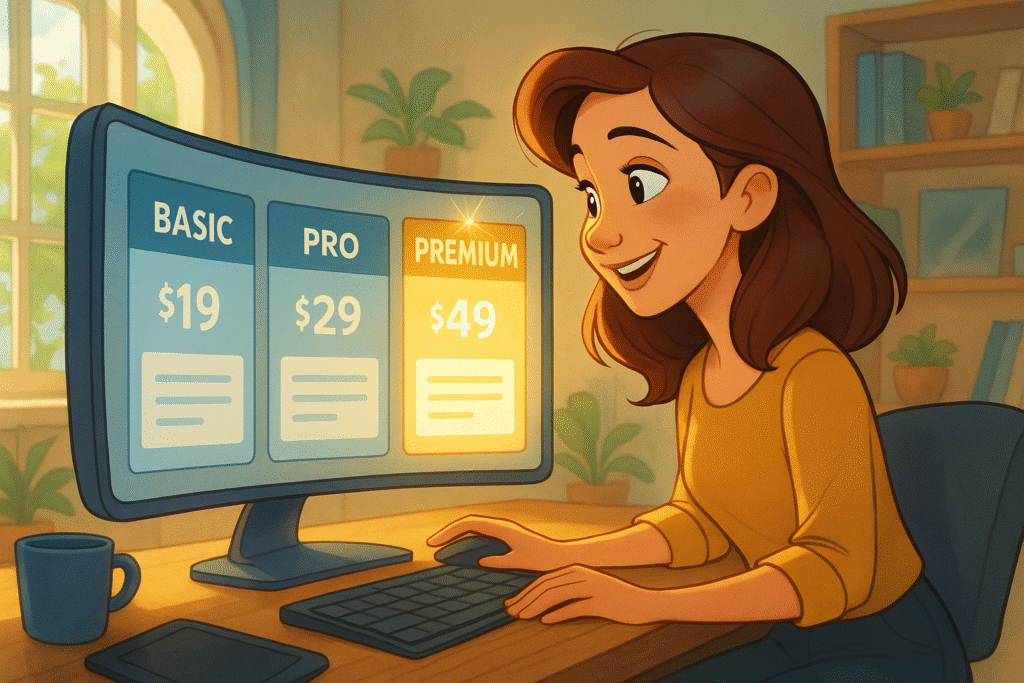
Reader Veronica from San Francisco asked: does “premium” wording work for software too?
It does, with a few extra levers.
The same psychology I wrote about a couple days ago applies: words like Premium, Pro, and Studio signal higher competence, capability, and care.
They set an expectation of quality before any feature list gets seen.
But software has one massive difference: it’s intangible.
You can’t feel its weight or texture. You can’t smell, taste or squeeze it. So language has to do a bigger share of the sensory work.
That’s why naming and tier labels carry such disproportionate influence.
They become the “material feel” of the product.
The catch: credibility.
A “Premium” label without a matching experience (polish, stability, service) backfires fast.
The moment lag or clutter appears, buyers see “premium” as unfunny irony.
So if you’re naming a paid plan or positioning a high-tier software offer, treat wording like UX: test for how it feels to say it out loud. It should sound earned, not inflated.
‘Cause “premium” only works when users feel it before they read it.
Want to make your product irresistible? That’s what we do as product marketing consultants at Graphos Product, helping innovators turn need-driven ideas into market-ready successes.
